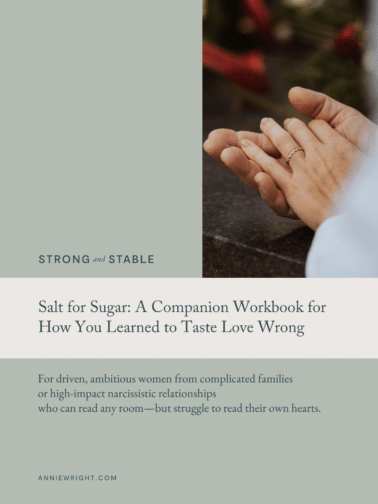TL;DR –The crucial distinction between relational trauma and Complex PTSD lies in understanding one as an experience and the other as a potential result—relational trauma refers to the traumatic experiences that occur within relationships (particularly childhood relationships with caregivers), while Complex PTSD is a specific clinical outcome that may develop from prolonged exposure to such trauma. Think of it like raindrops passing through a cold front: the trauma experience is the cold front itself, while C-PTSD is one possible crystalline structure the raindrop might form into, though not the only one. Relational trauma involves repeated exposure to unhealthy dynamics, betrayal, or neglect within power-imbalanced relationships, creating profound impacts on trust, self-worth, and attachment patterns.
Complex PTSD, formally recognized in the ICD-11 though not yet in the DSM, requires specific diagnostic criteria including all three core elements of PTSD plus severe affect regulation problems, persistent beliefs about being worthless, and difficulties sustaining relationships. Not everyone who experiences relational trauma will develop C-PTSD—outcomes vary based on factors like age when trauma occurred, inherent temperament, available coping mechanisms, and individual resilience. Recovery requires multi-dimensional healing addressing relational wounds, nervous system regulation, cognitive restructuring, emotional regulation, and often practical life skills that trauma may have prevented from developing normally.
I received an email from someone online this past week:
“Dear Annie,
Thank you for your website and all the essays you put on it. I’ve read a few pieces so far but I have a question: Can you help me understand what the difference between relational trauma and Complex PTSD is?
Thank you.”
I thought this was a great question, and while it’s one I’ve answered in ways across the years in my nearly 200 essays on the site, I thought it would be helpful to write an essay explicitly dedicated to explaining the answer to this question (as I understand it).
If you, like this individual who emailed me, have ever wondered what the difference between relational trauma and Complex PTSD is, keep reading.
How is relational trauma different from Complex PTSD?
First, let me say that trauma of any type is a complex and multifaceted experience that can manifest in various forms.
Two concepts that often surface when discussing trauma are relational trauma and Complex Post-Traumatic Stress Disorder (C-PTSD).
Both have significant implications for an individual’s mental and emotional well-being, but they differ in several key aspects and the crux of this essay hinges on the differences between an experience and a result.
Relational trauma is an experience.
Relational trauma, also known as interpersonal trauma, refers to traumatic experiences that occur within the context of relationships.
As I define it and focus on in my work, relational trauma, specifically childhood relational trauma, is the kind of trauma that results over the course of time in the context of a power-imbalanced and dysfunctional relationship (usually between a child and caregiver) that results in a host of complex and lingering biopsychosocial impacts for the individual who endured the trauma.
The key characteristics of relational trauma include:
- Repeated Exposure: Relational trauma usually results from ongoing exposure to unhealthy dynamics, betrayal, manipulation, or other harmful behaviors within relationships. Relational trauma survivors may experience a sense of perpetuity, as the trauma tends to be recurrent.
- Relationship-Centered: As the name suggests, relational trauma is inherently tied to the dynamics of personal relationships. This trauma typically arises from within family units, romantic partnerships, close friendships, or other interpersonal connections.
- Emotional Impact: The emotional toll of relational trauma can be profound. Relational trauma survivors may struggle with issues like trust, self-esteem, self-worth, and attachment difficulties, which are often deeply rooted in their traumatic experiences.
- Complexity: Relational trauma can be intricate, as it often involves multiple traumatic events and varied forms of abuse or neglect within a single relationship or across several relationships.
Seen through this lens, we can understand that relational trauma is an experience (or set of experiences) that someone might move through, whether this is in childhood, adolescence, or adulthood.
However, Complex PTSD is an outcome that can sometimes (but not always) result from the experience of relational trauma.
Complex PTSD is a result, an outcome that someone can experience.
Complex Post-Traumatic Stress Disorder (C-PTSD) is a result, a condition that often develops as a consequence of prolonged and repeated exposure to trauma, especially (but not necessarily always) of an interpersonal or relational nature.
Note: C-PTSD is not a term in the current Diagnostic and Statistical Manual of Mental Disorders (the DSM – the clinical bedrock textbook of the mental health field).
What's Running Your Life?
The invisible patterns you can’t outwork…
Your LinkedIn profile tells one story. Your 3 AM thoughts tell another. If vacation makes you anxious, if praise feels hollow, if you’re planning your next move before finishing the current one—you’re not alone. And you’re *not* broken.
This quiz reveals the invisible patterns from childhood that keep you running. Why enough is never enough. Why success doesn’t equal satisfaction. Why rest feels like risk.
Five minutes to understand what’s really underneath that exhausting, constant drive.
However, the 11th revision to the World Health Organization’s International Classification of Diseases (ICD-11) now includes complex PTSD (CPTSD), under a general parent category of ‘Disorders specifically associated with stress.’
I say this because while the term Complex PTSD is widely known, what you’re more likely to see on your actual medical chart is Post Traumatic Stress Disorder (PTSD), PTSD dissociative subtype, or Other Specified Trauma and Stressor-Related Disorders because the American mental health community relies on the DSM.
So, bearing this in mind, what does Complex PTSD as a result look and feel like?
As the ICD-11 defines it, Complex PTSD has multiple, essential and required features to diagnose it as such:
- Exposure to an event or series of events of an extremely threatening or horrific nature, most commonly prolonged or repetitive events from which escape is difficult or impossible.
- Following the traumatic event, the development of all three core elements of Post-Traumatic Stress Disorder, lasting for at least several weeks.
- Severe and pervasive problems in affect regulation.
- Persistent beliefs about oneself as diminished, defeated or worthless, accompanied by deep and pervasive feelings of shame, guilt or failure related to the stressor.
- Persistent difficulties in sustaining relationships and in feeling close to others.
- The disturbance results in significant impairment in personal, family, social, educational, occupational or other important areas of functioning.
- And suicidal ideation and behavior, substance abuse, depressive symptoms, psychotic symptoms, and somatic complaints may be present.
(Note: For a full, clinical list of the diagnostic criteria of PTSD and tangential diagnoses included in the DSM, please see here.)
Will anyone who lives through relational trauma experience Complex PTSD as a result?
So, the million dollar question is, if Complex PTSD is a result, an outcome that might occur to someone who lives through the experience of relational trauma, does that mean that everyone will experience Complex PTSD if they have experienced relational trauma?
No, not necessarily.
How and what symptoms manifest for someone after they move through the experience of relational trauma can vary.
I’ve written about this before, but, essentially, that’s because two individuals who live through a nearly identical set of circumstances can manifest impact (e.g.: symptomology) differently from each other.
I like to think of it analogously to raindrops passing through a cold front, coming out the other side shaped into snowflakes.
The crystalline structures of the snowflakes are utterly different from each other after moving through that experience versus having more closely remembered each other before.
When it comes to our human experience, how and what the impact of moving through a relational trauma experience may differ from person to person depending on a wide variety of variables such as the individual’s age at the time the trauma occurred, their gender, their inherent temperament, any external and internal coping mechanisms, whether or not they were the focus of or witness to the abuse or not old enough to remember, that individual’s inherent resilience, and much more.
So while Complex PTSD is one metaphorical crystalline structure a raindrop can manifest into (and indeed, many of us who endure relational trauma backgrounds crystalize into this structure so to speak), it’s not the only shape a snowflake can take after passive through the proverbial cold front of relational trauma experiences.
Other examples of snowflake structures that might manifest are wide, varied, complex, and, to be frank, clinically and diagnostically organized in manuals such as the DSM-5 or ICD-11 (though I’ve also certainly detailed out what manifestations can look and feel like here on this blog, too).
How do I begin to heal from relational trauma and/or Complex PTSD?
However, the experience of relational trauma may manifest itself for you – Complex PTSD as a result or not – please know recovery from relational trauma is and will be, for many, multi-dimensional work as the wounding itself is multi-dimensional.
There’s the relational wounding component and the need for relational healing. Which, I believe, can happen in the context of a safe, supportive, attuned, and reparative experience with a trained professional (like a trauma therapist). Or with a dear friend or securely attached romantic partner.
There is the stabilization phase of the work. Reducing the acuity of any symptoms and behavioral choices at play to numb intolerable feeling states. And integrate any fractured ego states that may have resulted from early experiences.
There is the somatic level of the work. The need to regulate and retrain the nervous system and body that the world is safe. And to help it calm down and respond appropriately versus in default.
There is the cognitive level of the work. Which includes recalling, narrating, and making meaning and sense of memories and history. As well as forming and internalizing newer, more constructive beliefs about oneself, others, and the world.
There is the emotional level of the work. Learning or relearning emotional regulation, emotional expression. And even being able to identify emotions in the body.
And there is, I believe, life skills work that may have been missed or impeded by the complexity of the relational trauma. Work like managing money wisely, seeking out and nurturing a fulfilling career, practicing self-supporting hygiene and personal care habits, and learning the myriad complex logistical skills that can lead to a whole and fulfilled adult life.
Working Through Relational Trauma and Complex PTSD in Therapy
When the distinction between your traumatic experiences and their clinical manifestations becomes important for healing, trauma-informed therapy provides the framework for addressing both the original wounds and their ongoing impacts. A skilled trauma therapist understands that whether you meet criteria for Complex PTSD or manifest trauma differently, the relational injuries require relational healing—meaning the therapeutic relationship itself becomes a corrective experience where trust can be slowly rebuilt.
Through this consistent, attuned connection, you begin updating beliefs formed in childhood about whether relationships are safe, whether you’re worthy of care, and whether vulnerability leads to harm or connection.
The therapeutic process for relational trauma extends beyond traditional talk therapy to include somatic approaches for nervous system regulation, since trauma lives in the body as much as memory. Your therapist might integrate EMDR for processing traumatic memories, somatic experiencing for releasing trapped trauma energy, or internal family systems for working with fragmented parts of self that developed to survive dysfunction.
Understanding whether you have C-PTSD becomes less important than addressing the specific ways trauma manifests in your daily life—the hypervigilance, relationship patterns, emotional dysregulation, or persistent sense of being fundamentally flawed.
Recovery involves multiple phases: first establishing safety and stabilization to reduce acute symptoms, then processing traumatic memories and their meanings, and finally integrating new understandings while building life skills trauma may have prevented from developing.
This might include learning emotional regulation techniques, boundary-setting skills, financial management, self-care practices, or career development—all the practical competencies that become possible once you’re not using all your energy just to survive. The goal isn’t just symptom reduction but building a life that feels genuinely worth living, relationships that feel truly safe, and a sense of self that isn’t defined by what happened to you but by who you’re choosing to become.
Wrapping up.
The best way, I truly believe, to begin recovering from relational trauma (however it has manifested for you) is to seek out professional support, ideally with a clinician who is well-versed in relational trauma.
I also believe that psychoeducation can be a wonderful and helpful tool in the recovery process and so, to that end, I have included some curated essays/resources for you at the end of this essay if you’d like to explore more on relational trauma, C-PTSD, childhood trauma, and recovery (you can also explore the vast category on my blog “Healing from Childhood Trauma” for even more resources).
But, for now, I’d love to hear from you in the comments:
Did this essay clarify for you the difference between relational trauma and Complex PTSD? Did you see yourself in this essay? If so, what has been one of the most helpful tools you’ve found on your relational trauma trauma recovery journey?
If you feel so inclined, please leave a comment below so our community of 30,000 blog readers can benefit from your wisdom.
Here’s to healing relational trauma and creating thriving lives on solid foundations.
Warmly,
Annie
Further Resources
Other articles of mine that may complement this one in your recovery from relational trauma and C-PTSD:
- 16 Things About Relational Trauma Recovery I Wish I’d Known 16 Years Ago
- 20 Common Experiences When You Endure Relational Trauma.
- Dispelling the myth of child abuse.
- How to recover from growing up with a narcissistic parent.
- The playing field wasn’t level to begin with: on childhood trauma and the fruitless comparison game.
- The power of being the black sheep in your family.
- What does it mean to remother yourself and why is it so critical for our growth as women?
- The five healing tasks of the un- and under-parented.
- Yes, sweetheart. You do actually get to grieve this.
- 5 Familiar Experiences When You Come From a Relational Trauma Background.
- 10 Years Later: Reflections On Relational Trauma Recovery Work.





